VIEWPOINT – PROTOTYPE 2023 continues to be a fertile incubator for the development of important new works of music theater
- By drediman
- January 19, 2023
- No Comments
Last week, I immersed myself in the 2023 edition of Prototype, a weeklong festival of new operas (in the most forward-looking instances of the genre) presented by Beth Morrison Projects and HERE. This year celebrating its landmark 10th anniversary, I’m happy to report that the indispensable festival continues to be a fertile incubator for the development of important new works of music theater. Prototype’s latest crop — which were staged at various venues across the city, primarily downtown — was a fascinating bunch, collectively notable for its refreshing variety, accomplished writing, and vivid presentations.
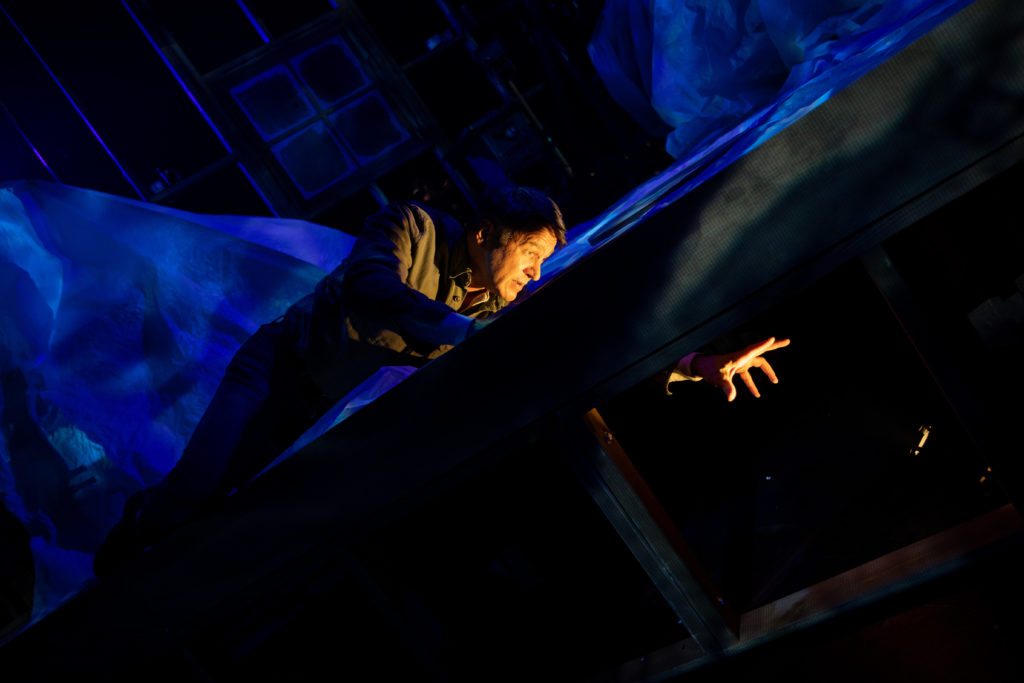
IN OUR DAUGHTER’S EYES
Baruch Performing Arts Center
First up at Baruch Arts Center was In Our Daughter’s Eyes (RECOMMENDED), composer Du Yun and librettist/director Michael Joseph McQuilken’s solo opera about a man coping with his wife’s difficult pregnancy with his daughter (no spoilers here). McQuilken’s emotionally turbulent libretto — which takes the form of journal entries — depicts the opera’s protagonist as he travels down the unknown but hopeful path to first time fatherhood. As complications mount, however, his psychological constitution is tested to its limits, which was complimented by McQuilken’s increasingly tense staging. Beloved baritone Nathan Gunn (who co-created the piece) gave a searing vocal and dramatic performance as the beleaguered father-to-be, delivering a definitive rendition of Du Yun’s meticulously orchestrated, deeply personal score — played expertly by a small group of musicians — that articulately highlighted the various shadings of the protagonist’s courageous journey.
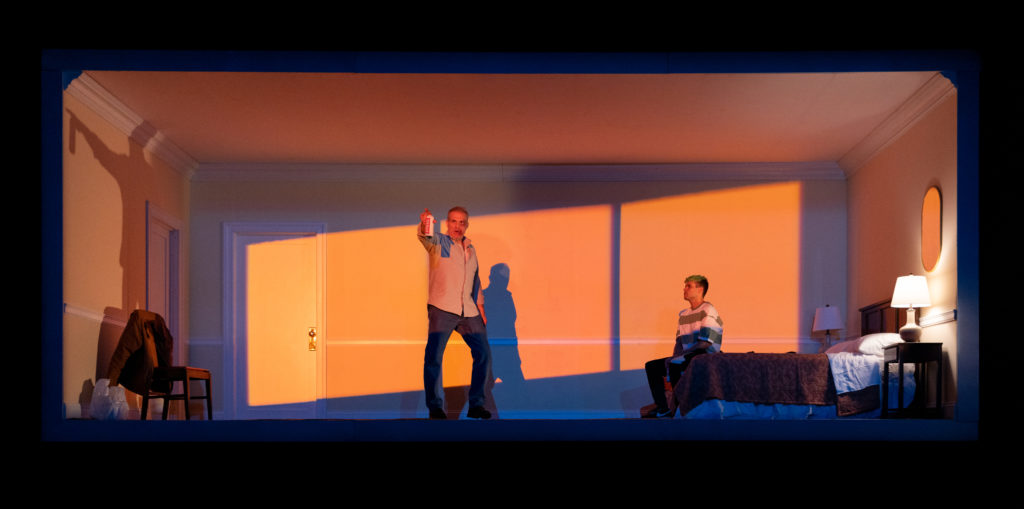
TRADE/MARY MOTORHEAD
Playhouse Theater at Abrons Arts Center
Then down at the Playhouse Theater at Abrons Arts Center, there was TRADE/Mary Motorhead (RECOMMENDED), a pairing of two emotionally turbulent one act operas by Emma O’Halloran (score) and Mark O’Halloran (libretto). Both set in Dublin, the operas take a hard look at the fraught lives of some of society’s outcasts. First up on the bill was Mary Motorhead, an operatic monologue that mines the murky depths of a convicted murderer’s psyche. As a candid confessional, the work is terrifying portrait of a woman who takes extreme action against the sensation of losing herself in society. Robust mezzo-soprano Naomi Louisa O’Connell gives a no-holds-barred performance that really got under my skin. TRADE, to continue on the theme, tells the story of a rent boy and an older closeted customers, played respectively with astonishing realism by Kyle Bielfield and Broadway’s Marc Kudisch. If the opera lacks the elegant succinctness of Mary Motormouth, TRADE nonetheless overwhelms the viewer with its frankness and emotional nakedness, particularly in terms of Ms. O’Halloran’s restless score and director Tom Creed’s impressively polished staging.
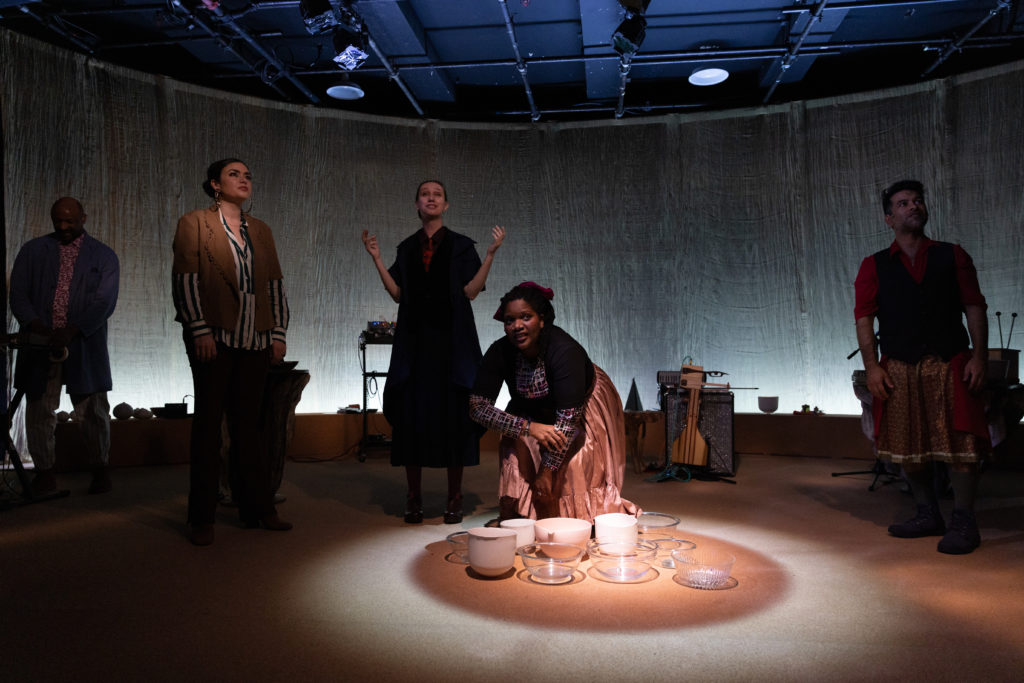
MƆɹNIŊ [MORNING//MOURNING]
HERE Mainstage
Perhaps the unexpected highlight of this year’s Prototype was mɔɹnɪŋ [morning//mourning] (HIGHLY RECOMMENDED), a quirky yet exquisite new piece of music theater by Gelsey Bell (a talent theater fans may perhaps recall from Dave Mallory’s The Great Comet). Playfully avant-grade in nature, the work is a thoroughly compelling, fiercely inventive chronicle of the evolution of our planet after humans have become extinct (including new, wildly conjured life forms). And that’s just the beginning. By the work’s conclusion, I had the mystical sensation of having traveled across time and space to glimpse the ultimate fate of the cosmos. Bell’s score is a marvel — her composition is organic, otherworldly, and altogether evocative of a fantastically imagined future. Superbly performed by a multi-tasking company of five (including Bell herself), the ceaselessly fascinating score — which featured out-of-the-box instrumentation — and production (ingeniously staged by director Tara Ahmadinejad) stunned both myself and the audience around me. Both intimate and expansive, the entirely singular mɔɹnɪŋ [morning//mourning] is nothing short of visionary.
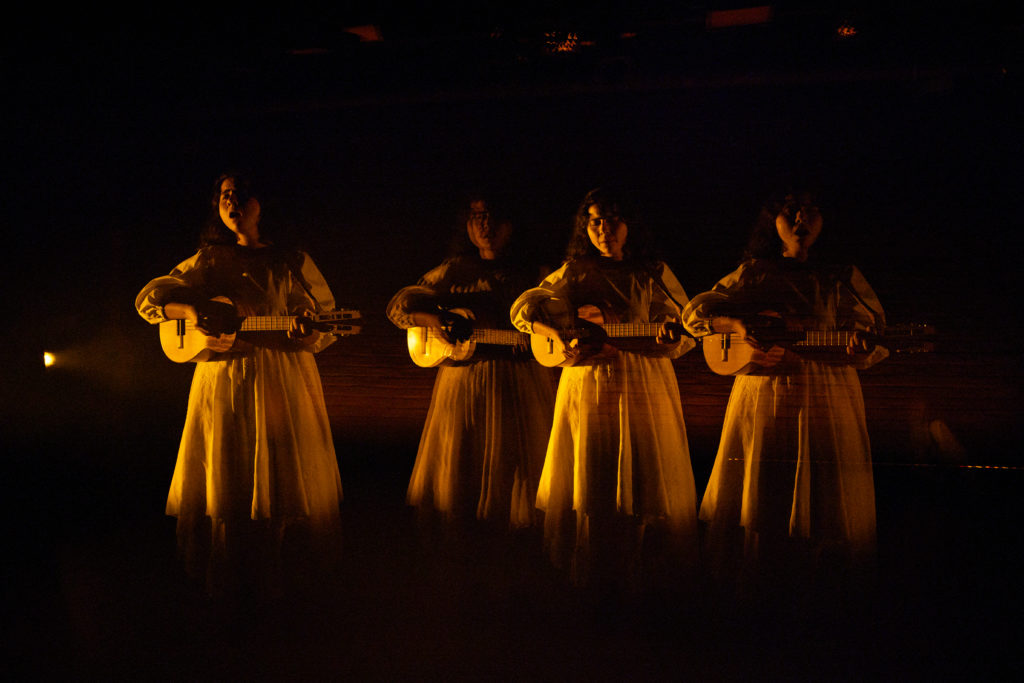
MARCHITA
HERE DOT
The most intimate of this festival’s offerings also turned out to be one of its most captivating. Performed in the tight confines of HERE’s cozy basement theater, I had the opportunity to attend a performance of Silvana Estrada’s deeply affecting Marchita (HIGHLY RECOMMENDED). Although the singer/songwriter’s work here can be technically described as Latin folk music, the acoustic song cycle transcends categorization, soulfully and poetically tapping into a universal humanity that seems born of authentic experience. Ritualistically directed by the multi-tasking Estrada on a bare stage, the production made resourceful use of the work’s excellent vocal quartet (including the quietly magnetic Estrada), sensitively incorporating physical physical movement into the fabric of the piece. In summary, the resulting experience was plaintive, gentle, and altogether immensely moving.
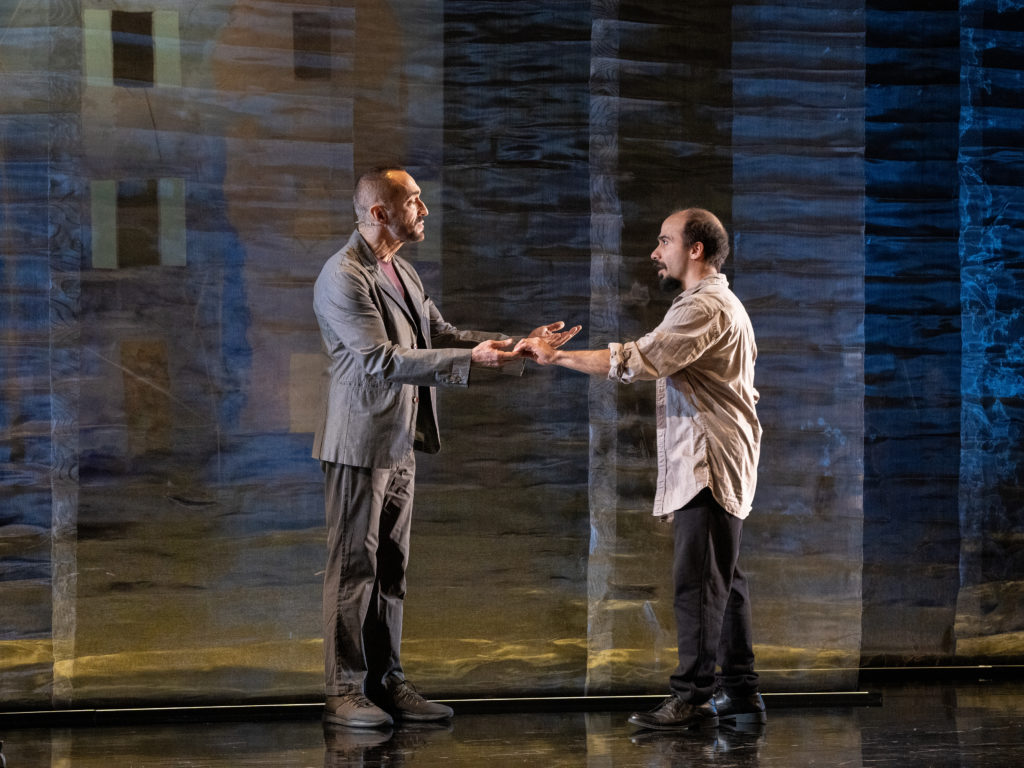
NOTE TO A FRIEND
Japan Society
Rounding out the festival’s in-person opera productions this year was Pulitzer Prize-winner David Lang’s Note to a Friend (HIGHLY RECOMMENDED) (the festival also included the fantastical animated opera Undine, which viewers were able to stream for free), which was presented at Japan Society. Collated and reimagined from a trio of texts by Japanese writer Ryunosuke Akutagawa, the opera is a clear-eyed, fiercely empathetic take on the act of suicide. Lang’s accomplished score — performed with elegance and delicate grace by Japanese — is a wonder of melodic economy and emotional clarity. A longtime desciple of Peter Brook, Yoshi Oida staged the piece with the austerity and deliberate artistry that was the trademark of the legendary British director. As the spectre who is hauntingly resurrected through a letter to his living friend, distinctive New York-based vocalist Theo Bleckmann hauntingly evoked immense wisdom and ethereal calmness.

 Copyright © 2024
Copyright © 2024
Leave a Reply